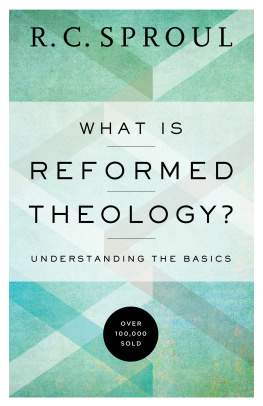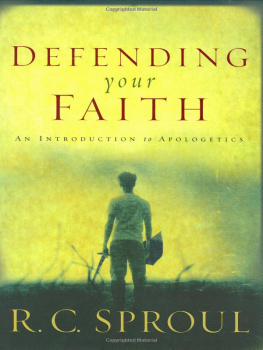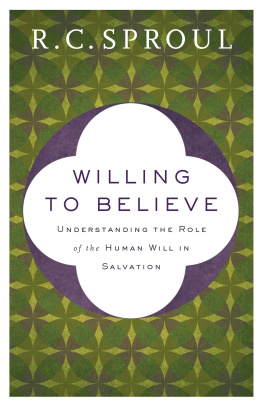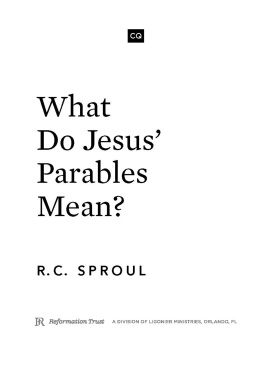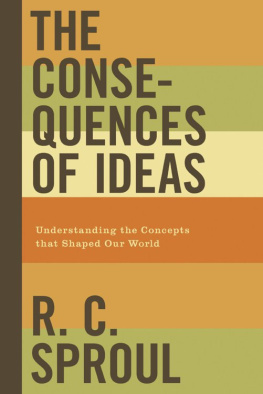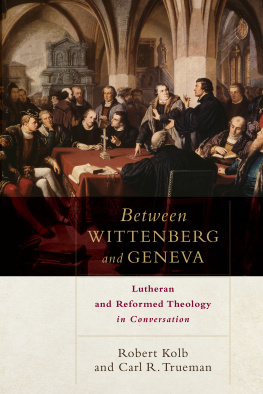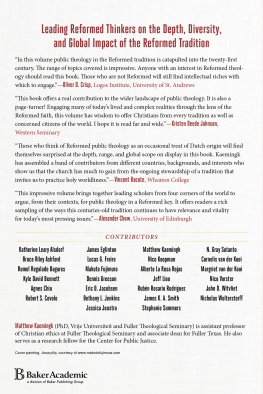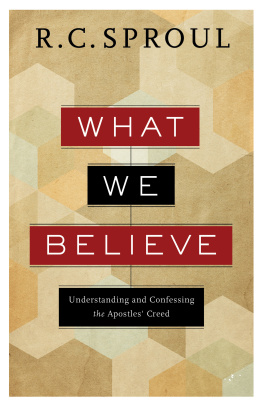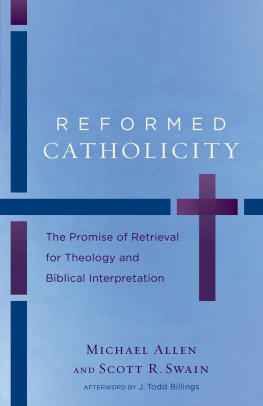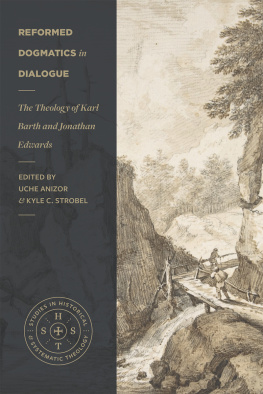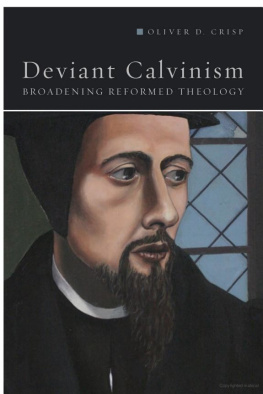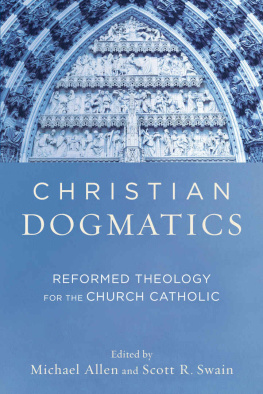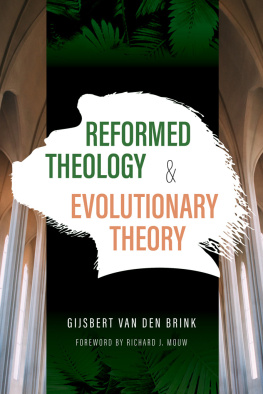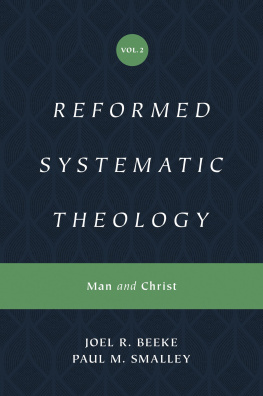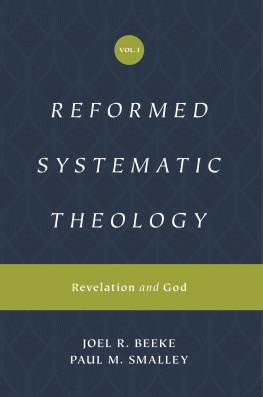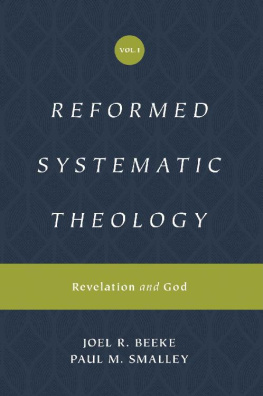. Adolf Harnack, What Is Christianity? , trans. Thomas Bailey Saunders (1901; reprint, New York: Harper & Row, 1957).
. David F. Wells, No Place for Truth: or, Whatever Happened to Evangelical Theology? (Grand Rapids, Mich.: Eerdmans, 1993), 95.
. Ibid., 97. See Ian T. Ramsey, Models for Divine Activity (London: SCM , 1973), 1.
. Wells, No Place for Truth , 98.
Chapter 1 Centered on God
. Martin Luther, What Luther Says: An Anthology , ed. Ewald M. Plass, 3 vols. (St. Louis: Concordia, 1959), 2:551.
. John Calvin, Institutes of the Christian Religion , 2 vols., trans. Henry Beveridge (1845; reprint, Grand Rapids, Mich.: Eerdmans, 1964), 1:51 (1.5.1).
. Ibid.
. Ibid., 1:37 (1.1.1).
. Ibid., 1:3839 (1.1.2).
. The Westminster Confession of Faith , 2.2.
. Calvin, Institutes of the Christian Religion , 1:39 (1.1.3).
. Ibid., 1:5960 (1.5.1112).
Chapter 2 Based on Gods Word Alone
. John Calvin, Institutes of the Christian Religion , 2 vols., trans. Henry Beveridge (1845; reprint, Grand Rapids, Mich.: Eerdmans, 1964), 1:68 (1.7.1).
. Martin Luther, What Luther Says: An Anthology , ed. Ewald M. Plass, 3 vols. (St. Louis: Concordia, 1959), 1:62.
. Ibid., 1:63.
. Ibid., 1:67.
. Ibid., 1:68.
. Ibid., 1:72.
. Ibid., 1:87.
. Ibid., 1:88.
. Calvin, Institutes of the Christian Religion , 1:6869 (1.7.1).
. Ibid., 1:69 (1.7.2).
. Luther, What Luther Says , 1:87.
. Ibid.
. Ibid., 1:93.
. Ibid., 1:9192.
Chapter 3 Committed to Faith Alone
. Martin Luther, What Luther Says: An Anthology , ed. Ewald M. Plass, 3 vols. (St. Louis: Concordia, 1959), 2:704 n. 5.
. Ibid., 2:704.
. Ibid., 2:703.
. John Calvin, Institutes of the Christian Religion , 2 vols., trans. Henry Beveridge (1845; reprint, Grand Rapids, Mich.: Eerdmans, 1964), 2:3738 (3.11.2).
. Luther, What Luther Says , 2:921.
. Ibid., 2:710.
. Calvin, Institutes of the Christian Religion , 2:115 (3.17.12).
. Ibid., 2:57 (3.11.21).
. Luther, What Luther Says , 1:522.
. Ibid., 2:71415.
Chapter 4 Devoted to the Prophet, Priest, and King
. The Westminster Confession of Faith , 8.1.
Chapter 5 Nicknamed Covenant Theology
. C. I. Scofield, ed., Scofield Reference Bible (New York: Oxford University, 1909).
. George E. Mendenhall, Law and Covenant in Israel and the Ancient Near East (Pittsburgh: Biblical Colloquium, 1955).
. Meredith G. Kline, Treaty of the Great King: The Covenant Structure of Deuteronomy: Studies and Commentary (Grand Rapids, Mich.: Eerdmans, 1963); By Oath Consigned: A Reinterpretation of the Covenant Signs of Circumcision and Baptism (Grand Rapids, Mich.: Eerdmans, 1968).
. The Westminster Confession of Faith , 22.12.
. Ibid., 7.2.
. Ibid., 7.3. Emphasis added.
. Ibid., 7.56.
Chapter 6 Humanitys Radical Corruption
. Adolf Harnack, History of Dogma , trans. James Millar (1898; reprint, New York: Dover, 1961), 16869. From Augustine, On the Gift of Perseverance (AD 428), 53.
. John Calvin, Institutes of the Christian Religion , 2 vols., trans. Henry Beveridge (1845; reprint, Grand Rapids, Mich.: Eerdmans, 1964), 1:214 (2.1.5).
. Martin Luther, What Luther Says: An Anthology , ed. Ewald M. Plass, 3 vols. (St. Louis: Concordia, 1959), 3:13001301.
. The Westminster Confession of Faith , 9.3.
. Calvin, Institutes of the Christian Religion , 1:22829 (2.2.67).
. The Westminster Confession , 9.45.
Chapter 7 Gods Sovereign Choice
. The Westminster Confession of Faith , 3.35. The word predestined is predestinated in the original.
. Albrecht Oepke, Elk , in Gerhard Kittel, ed., Theological Dictionary of the New Testament , ed. and trans. Geoffrey W. Bromiley, vol. 2 (Grand Rapids, Mich.: Eerdmans, 1964), 503.
. John Calvin, A Treatise on the Eternal Predestination of God , trans. Henry Cole, in Calvins Calvinism (Grand Rapids, Mich.: Eerdmans, 1950), 31.
. John Calvin, Institutes of the Christian Religion , 2 vols., trans. Henry Beveridge (1845; reprint, Grand Rapids, Mich.: Eerdmans, 1964), 2:212 (3.22.1).
Chapter 8 Christs Purposeful Atonement
. J. I. Packer, Introductory Essay, in John Owen, The Death of Death in the Death of Christ: A Treatise in Which the Whole Controversy about Universal Redemption Is Fully Discussed (1852; reprint, London: Banner of Truth, 1959), 4.
. Ibid.
. Owen, The Death of Death in the Death of Christ , 161.
. Ibid., 236.
. The Westminster Confession of Faith , 3.1.
. Ibid.
. Owen, The Death of Death in the Death of Christ , 45.
Chapter 9 The Spirits Effective Call
. J. I. Packer and O. R. Johnston, Historical and Theological Introduction, in Martin Luther, The Bondage of the Will , trans. J. I. Packer and O. R. Johnston (Cambridge: James Clarke / Westwood, N.J.: Revell, 1957), 5758.

